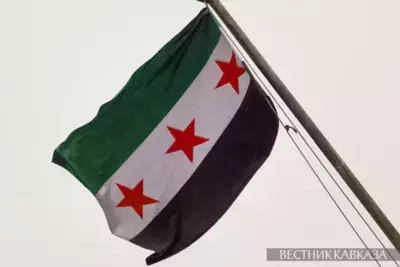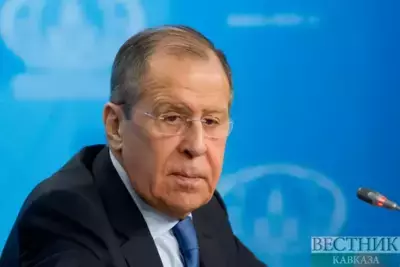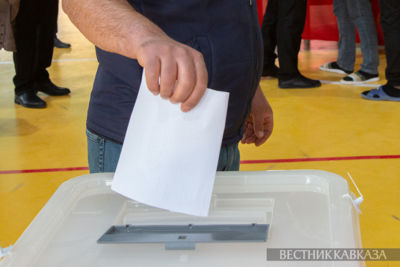After the beginning of the Russian military operation in Syria, relations between Moscow and Ankara became tense. Turkey negatively viewed Bashar al-Assad’s visit to Moscow. Talks between Vladimir Putin and the President of Syria were described by the President of Turkey Recep Tayyip Erdogan as an attempt to put the opposition on the black banner. “Who can assess the real situation better than the country which has a common border with Syria (911 km) and with Iraq (350 km)? They will never resolve the situation. Sooner or later they will have to agree with us. In otherwise, we will have to take appropriate measures,” Erdogan said.
The President of the International Academy of Civic Consciousness, Hakan Altinay, told Vestnik Kavkaza about Russian-Turkish relations and the situation in the region.
- What do you think about the current relations between Moscow and Ankara?
- The best news of the last 25 years has been the ability of Turkey and Russia to have good relations compared with history, where there were so many wars – the 17th, 18th, 19th centuries. In the 20th century we had the Cold War. And these two countries have been on the opposite sides of every single conflict for four centuries. And then in the last 25 years we had a growing relationship. That’s really important. So I hope we find a way to agree on Syria. Clearly on Syria, Russia and Turkey don’t have a common position. We’ll see whether we will be able to overcome the disagreement and the affects of the disagreement.
- How would you comment on the position of the Western countries on Syria?
- I think Western countries have been confused for a very long time. They were indignant at Assad’s violence against his own citizens. We know as many as 50 thousand people died due to things like barrel bombs. But the West couldn’t imagine the future of Syria without Assad. So there was a stalemate. That stalemate produced unstable characters like ISIS, which made the problem universal. I think this may go down in history, if not as a graveyard, but at least a comatose failing to protect the idea. It doesn’t look good.
- What do you think about the visit by the Syrian President Bashar Assad to Moscow?
- It is interesting. Apart from a few photographs and a short video clip we didn’t get much out of it. But it’s interesting that he feels comfortable enough to leave Damascus and come to Moscow, where he expressed gratitude. We’ll see where it leads.
- What are the current relations between Turkey and the USA?
- Of course, Turkey and the U.S. have been NATO allies for a very long time. Turkey increasingly has its own ideas about how to act in the Middle East and in the region. We have heard some senior diplomats say Turkey is becoming the country that we’ve always wanted it to become. It is not easy to deal with medium-sized powers, but Turkey is making relations on solved grounds, so I’m sure they will continue to evolve.
- What can you say about relations between Ankara and Azerbaijan, Armenia, Georgia?
- With Azerbaijan, obviously, the relations are very close. Sometimes the two leaders refer to our two countries as one people. The languages are very similar. Economically, hydrocarbons are a clear basis for cooperation. That relationship will continue.
With Armenia we have a far more difficult relationship. There is a major disagreement on what happened to the Armenians in 1915. And then disagreement spreads to other issues, certainly curtaining any aspects of cooperation. I hope we’ll find a way to agree. I don’t think Turks and Armenians will ever agree on what happened in 1915. But the cost of the disagreement may be decreased. Not all countries, not all societies agree on all matters. But that’s very difficult relationships. I do think we shouldn’t hold our breath about possible progress in Turkish-Armenian relationships any time soon.
With Georgia, my understanding is that relationships are positive. Our countries are bound to each other by geography, we have always been neighbors. And clearly again in the hydrocarbon sphere, there is a maximum area for cooperation. There is a large Georgian Diaspora living in Turkey. They are also one of the elements in the cooperation. Hopefully as the region itself or the greater region, we will manage to prosper together.
- What are the ways out of the Karabakh conflict?
- At the moment we have a vicious circle. It is necessary to start with things happening right, maybe a small progress, some rights being turned over, and that will encourage all the other partners to do the right thing. So, rather than having a vicious circle, we can have a virtuous circle, so we all go a step further than we have done in the past. Unfortunately, I think both sides – Armenia and Azerbaijan – feel that time is on their side, as their friends feel they are getting richer and more powerful too. Time is on their side. Armenia’s friends feel that time is on their side, as the facts on the ground become more permanent. It seems to me that your time horizon is the most important when you are trying to solve a problem. If you think you have maximum time, you don’t have many assets to solve it. But we also know that all these unresolved frozen conflicts are bombs with a fuse. No one knows how long the fuse is. It could be very short. So if we can help it, we should solve as many of these problems as possible. We’ll see.
- What are your forecasts about the upcoming parliamentary elections in Turkey?
- I will be very surprised if the election results on November 1st will be radically different from the election results on June 7th. Maybe 1 per cent point here, 1 per cent point there, but I don’t think the ruling party is likely to receive a mandate to form a single-party government. And I think we may get a German-style grand coalition in Turkey. And that would be good news for Turkey. Turkey has big problems. It needs a large coalition with a strong mandate to solve them. It’s like a big ship with a small rudder. So, you need a capable rudder and a capable captain to survive in difficult times. So I hope we will get through the formality of the elections and get onto the real business of imagining what a coalition would look like.
















